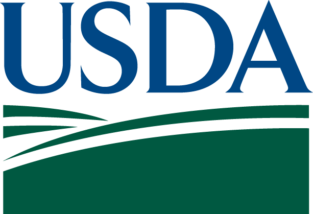Project Phases
USDA AMS Grant TA with a Focus on Socially Disadvantaged Communities
Overview of Project Structure/Methodology
Phase One Activities for Project Overall – Led by FAMU, UMES and USDA
1a: Data Collection
This first phase of work will be dedicated to truly understanding the needs of the BIPOC community as it relates to Federal funding. To develop materials that will effectively address the current challenges and barriers to receiving Federal funding, encourage the replication of past successes, and codify best practices for USDA AMS and applicants, this project team will:
- Identify partners working on creating an equitable and resilient food system.
- National organizations working with BIPOC communities
- Other 1890, 1994 and Hispanic-Serving Institutions university partners
- Conduct listening sessions that are representative of different regions, ethnicities, races, tribal affiliations, immigrant, and refugee farmers.
- Assist partner networks to collect data on challenges and technical assistance needs from their stakeholders.
- Curate a representative steering committee from these listening sessions.
1b: Synthesis and Evaluation
- Synthesize findings and develop recommendations for learning sessions based on those findings. Provide the developed recommendations to steering committee for review and suggestions.
- Write phase 1 report that includes learnings from methodology utilized for data collection, an evaluation of the phase as a whole and recommendations for continued data collection, and relationship building efforts in the future.
Proposed Phase One Activities for University Partner
- Work with project leaders (UMES for Northern States and FAMU for Southern States) to conduct listening sessions/focus groups/practitioner interviews. The amount of sessions and/or participants can vary and will depend on the needs of the community.
- Debrief on completed activities with project leaders, synthesize data, share experiences and identify themes.
- Provide feedback on the process, lessons learned or recommendations for future efforts
Phase Two Activities for Project Overall – Led by FAMU, UMES and USDA:
Note: This phase will be built out and executed based on findings from Phase 1. The activities below represent what could be accomplished during this phase, however it is possible that Phase 1 learnings will guide the project team to a different set of activities and deliverables.
2a: Material Development and Piloting
- Develop learning sessions and resources based on Phase 1 recommendations.
- Learning sessions could vary based on target audience
- Pilot learning sessions with steering committee and representatives from their respective networks.
- Make adjustment to learning sessions and resources based on feedback from pilot.
2b: Outreach and Execution
- Work with partner organizations and universities to complete “Train-the-Trainer” events for the learning sessions so that the scale of the learning sessions’ outreach expands via trainers trained on executing the material.
- Support trainers to execute trainings for their stakeholder groups.
- Complete outreach on AMS grants, the developed learning sessions and review panel opportunities.
- Through these outreach efforts, recruit applicants to complete relevant learning sessions and/or individuals to participate on review panels.
2c: Evaluation
- Survey individuals who received training.
- Write final project report that includes an evaluation of the project as a whole and recommendations for continued efforts in the future.
Proposed Phase Two Activities for University Partner
- Work with project team as they develop learning sessions. Provide feedback and recommendations to help curate the learning sessions to the expressed needs of the community.
- Participate in “train-the-trainer” event and conduct learning sessions with participants after completing training.
- Complete outreach on AMS Grants, the developed learning sessions and review panel opportunities.
- Survey individuals who received training to obtain feedback on learning sessions that will inform the project’s final report/deliverables.


